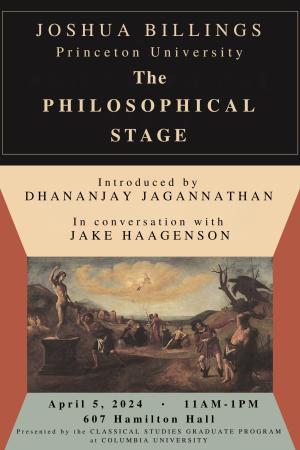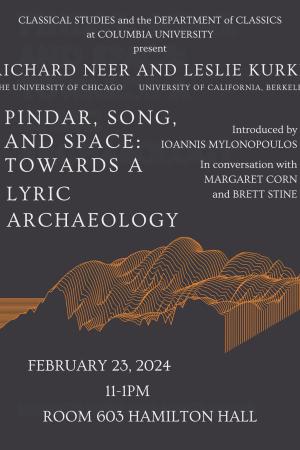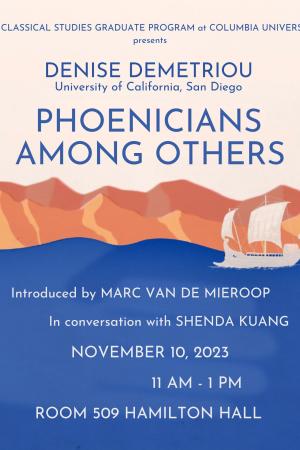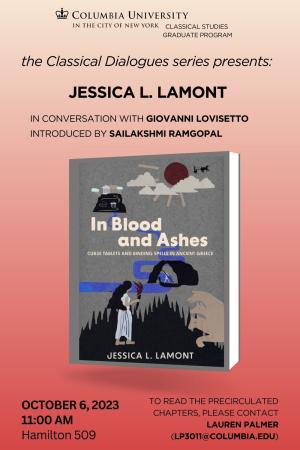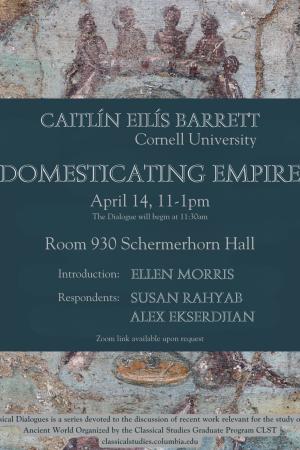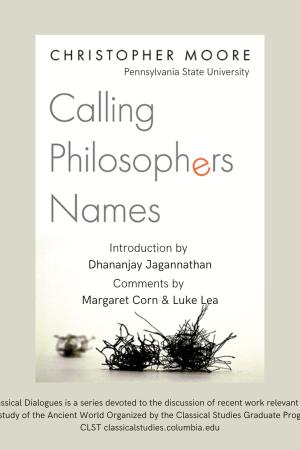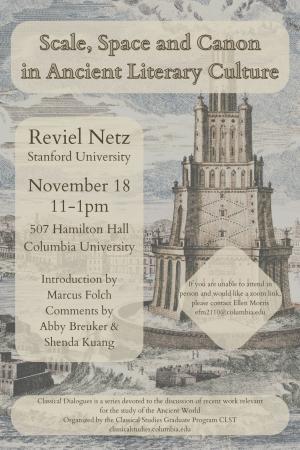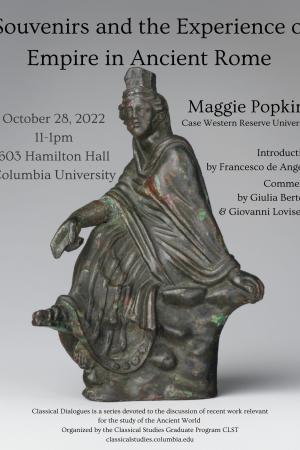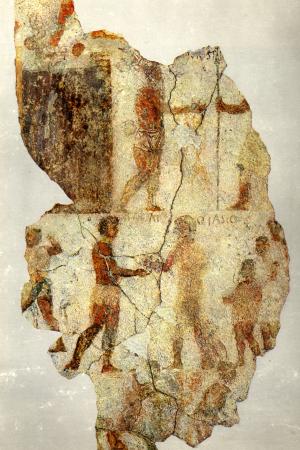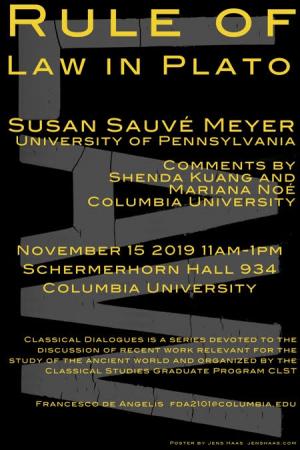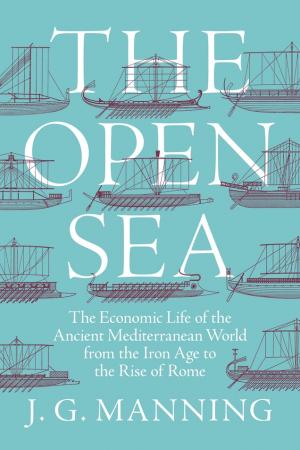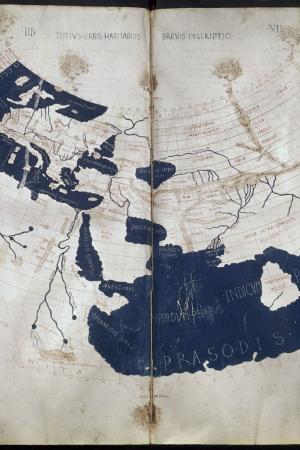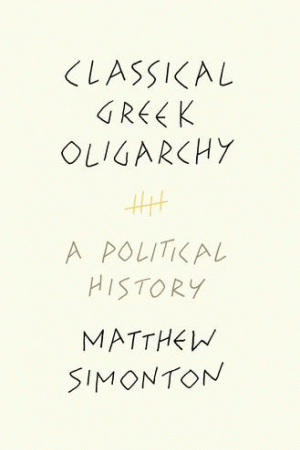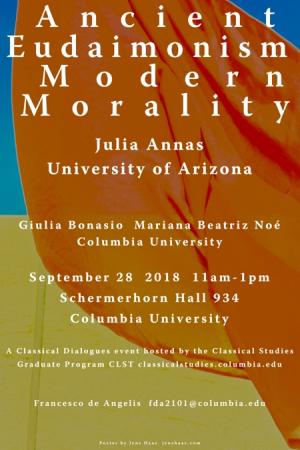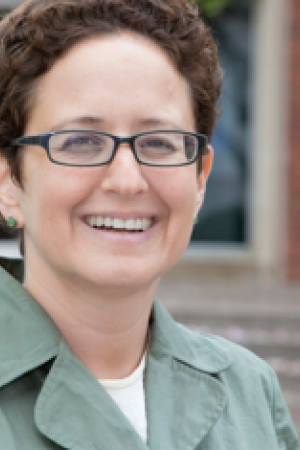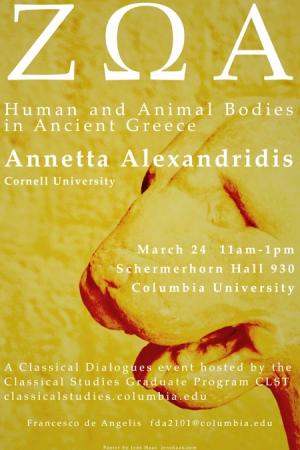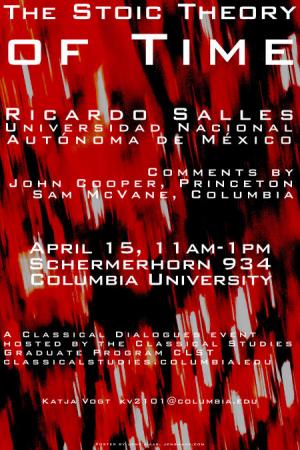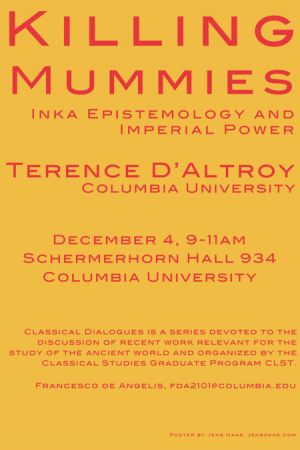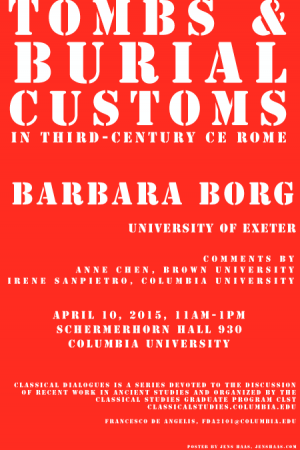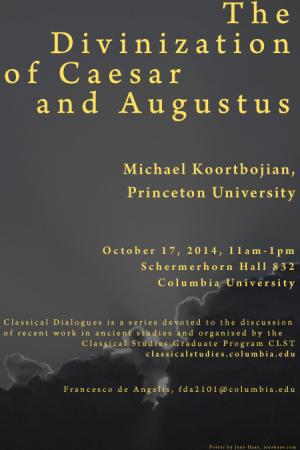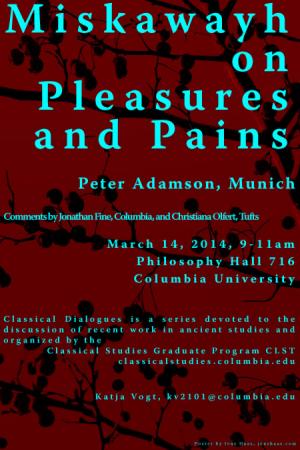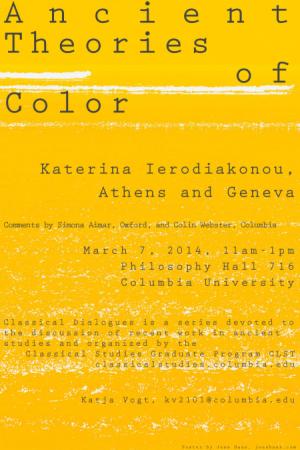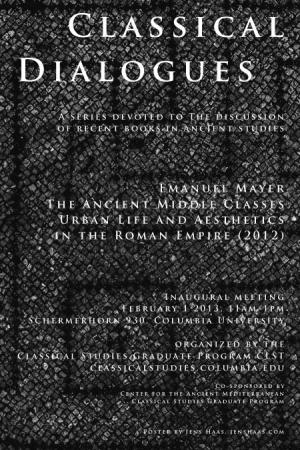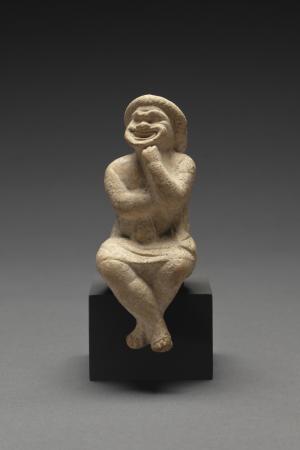 Plautus and Popular ComedyAmy Richlin UCLAApril 26, 2019 - April 26, 2019
Plautus and Popular ComedyAmy Richlin UCLAApril 26, 2019 - April 26, 2019
11:00am - 1:00pm -
Columbia University
As part of its Classical Dialogues series, the Classical Studies Graduate Program at Columbia University is pleased to welcome Amy Richlin, Professor of Classics at UCLA. On April 26th, 11 am-1 pm, Professor Richlin will discuss her book, Slave Theater in the Roman Republic: Plautus and Popular Comedy. (Cambridge University Press, 2017). Commentators Francesco Cassini (Columbia) and Elizabeth Heintges (Columbia). Location: Schermerhorn Hall 807, Columbia University. Please see below for an abstract from Amy Richlin.
Roman comedy evolved early in the war-torn 200s BCE. Troupes of lower-class and slave actors traveled through a militarized landscape full of displaced persons and the newly enslaved; together, the actors made comedy to address mixed-class, hybrid, multilingual audiences. Surveying the extant fragments of early comedy and the whole of the Plautine corpus, where slaves are central figures, this book is grounded in the history of slavery and integrates theories of resistant speech, humor, and performance. Part I shows how actors joked about what people feared—natal alienation, beatings, sexual abuse, hard labor, hunger, poverty—and how street-theater forms confronted debt, violence, and war loss. Part II catalogues the onstage expression of what people desired: revenge, honor, free will, legal personhood, family, marriage, sex, food; free speech; a way home, through memory; and manumission, or escape—all complicated by the maleness of the actors. Comedy starts with anger.
Image: Statuette of a seated comic actor. Unknown artist; Greek (South Italian; Apulia?), 325–275 B.C. Terracotta; 4.5 x 1.75 x 2.5 inches. J. Paul Getty Museum 96.AD.164. Digital image courtesy of the Getty’s Open Content Program.
In its Classical Dialogues series, the interdepartmental Classical Studies Graduate Program CLST at Columbia University invites authors of recent work in ancient studies that is exemplary for the kind of study that CLST aims to foster. All faculty and students at Columbia and beyond are cordially invited. CLST students are required to read carefully at least one chapter or article in advance and prepare questions and comments for discussion.
